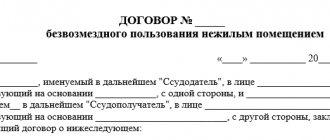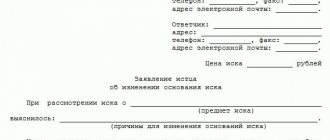A lifelong maintenance agreement with a dependent on an apartment is a relatively new form of civil legal relations. This type of contract is used by single pensioners who need help with housework, attention, care, therapeutic services, etc. An annuity agreement, which takes into account all the significant details, powers and obligations of the parties, is often the only way to ensure a decent and comfortable existence for an elderly person.
Registration procedure
Lifetime maintenance with dependents is an agreement in which it is necessary to regulate the essential conditions of these legal relations. The legislation puts forward a list of requirements for the content of the contract. The parties provide:
- the essence of this agreement;
- procedure for providing senior citizens with everything they need;
- mutual responsibilities of the parties;
- a special procedure for terminating relations - rent buyout;
- stipulate in what cases liability arises under the agreement;
- final conditions.
What is the essence of the agreement
This agreement is a form of lifelong maintenance for an elderly person with a dependent. The content of the contract includes both mandatory conditions provided for by law and additional obligations.
Important! In the contract we indicate the exact address of the real estate and technical characteristics. We also refer to the details of the certificate of ownership of the property.
Annuity and lifelong maintenance agreements with dependents, like any agreement, are personally signed by the parties to the agreement, indicating the date of preparation.
This is important to know: How the deadline for accepting an inheritance is restored if it is missed through the court for good reasons
Procedure for fulfilling obligations
Lawyers recommend that all mutual obligations be regulated in detail. Indicating the deadline for fulfilling mutual obligations. Outline a list of actions that a citizen should carry out regarding the care of an elderly person.
Note! The parties, when drawing up an annuity agreement with lifelong maintenance, indicate in detail the list and deadlines for fulfilling obligations.
The content includes the following obligations:
- regular payment of utility bills;
- providing funds for food and household goods;
- payment for services of medical institutions;
- monthly amounts of payments to fulfill the terms of the agreement.
Mutual obligations
The participants in these relations need to regulate in detail their mutual rights and the deadlines for fulfilling their obligations. Detail the list of rights.
Special procedure
This clause of the agreement regulates the procedure for terminating the agreement, providing for the right of the other party to purchase the real estate.
Responsibility
We regulate the liability of the parties for failure to fulfill obligations. We indicate mutual rights regarding the fulfillment of clauses of the agreement, when the other party has the right to demand fulfillment of the obligation.
Final conditions
The general content of the final conditions consists of a list of actions to formalize the contract. Who should pay for notary services? Indicate the duration of mutual obligations.
Main obligations
According to the main points of the annuity agreement and lifelong maintenance with dependents, the annuity payer is responsible for the timely payment of funds. Deadlines for payment of undertaken obligations. The amount of payment is calculated individually, taking into account the cost of real estate and the maintenance requirements of elderly citizens.
Expert opinion
Mikhailov Evgeniy Alexandrovich
Teacher of civil law. Lawyer with 20 years of experience
We provide a separate clause about what premises are being sold and the exact address. It is recommended to describe the technical characteristics of the structure. If a lifelong maintenance agreement is envisaged for elderly citizens with dependents on an apartment, we also indicate the technical parameters of this property.
When transferring residential premises in accordance with obligations, property owners must indicate the number of registered citizens. What kind of family relationships do they have with these persons?
The value of real estate must be documented. Otherwise, we turn to specialists. They will evaluate the property and indicate the exact value of the property.
Note! The parties can agree on the transfer of real estate, either for a fee or free of charge.
In the case of transfer of real estate for a fee, we indicate in the document the exact amount of payments. Payment periods.
When justifying the terms of execution of the contract, they proceed from the clauses of the document that provide for a permanent and lifelong annuity. If rental payments are provided on an indefinite basis, the end of the agreement is the full repayment of the cost of the property. Payments continue after the death of the property owner.
Lifetime payments provide for payment of annuity until the opening of the inheritance.
Recommendations to the beneficiary of the transaction
A citizen receiving a pension, under any conditions of the transaction, has the full legal right to live in his personal living space until his death. If he transfers his property free of charge, then if the volume or quality of the material goods provided to him decreases, he has the right to terminate the agreement and demand the return of the property with an adjustment of its value by the amount of the content provided.
We advise you to provide for everything down to the smallest detail and record in the text of the contract the quantity and quality of food and medicine purchased for you. We recommend that the services provided in the form of a nurse coming or cleaning the premises be detailed in terms of time spent and frequency of execution. Attentive approach to detail guarantees careful and high-quality performance by the payer of his duties.
The high cost of real estate causes increased interest among scammers in lonely elderly people. In legal practice, there are many cases where lonely elderly people mysteriously died after signing contracts for their lifelong maintenance. Therefore, pay close attention to the personality of the person offering you services.
Typical contract template
The agreement of annuity and lifelong maintenance with dependents is drawn up by the participants in legal relations on the basis of typical samples. Fill out the required details of the agreement.
typical sample agreement with lifelong maintenance with dependents
Terms of agreement
Important! When drawing up this agreement, the parties to the agreement should provide both the terms of the document provided for by law and additional clauses.
This is important to know: What tax is paid on the sale of an apartment received by inheritance
We independently include additional clauses in the contract, taking into account individual characteristics. We indicate information that is not provided in the typical contract form.
What is annuity
The owner of real estate can transfer his rights to another person in exchange for maintenance or certain payments. When it comes to rent, as a rule, we mean the transfer by a person (mainly elderly) of his apartment to people who undertake to provide him with decent and necessary living conditions for life.
In this case, the following restrictions are imposed on housing:
- Reservation of the right of residence for the rent recipient.
- Dispose of a real estate apartment without the consent of the rentee.
- The registration of third parties in the apartment must be agreed upon with the former owner.
Attention! Rent encumbers the property and is subject to registration with the Rosreestr authorities.
In the vast majority of cases, the parties to the annuity agreement are:
- a single elderly person - the owner of the only home who does not have enough money to provide for himself and maintain the property;
- people who do not have their own apartment and do not have the finances to purchase it.
For one party, a rental agreement is an opportunity to obtain ownership of a real estate property by paying for it in installments, and for the other, to ensure a decent life for oneself at the expense of an existing apartment. As a rule, an agreement is concluded between persons who have blood ties. In the case where the parties are not relatives, before concluding an agreement, it is necessary to carefully study each condition of the document.
Procedure for drawing up an agreement
The legislation provides for special requirements for the content and execution of contracts of this type. The parties to the agreement, having agreed to all essential terms, present the document to a notary for certification.
The notary, having studied the conditions, having come to the conclusion that the contents of the document complies with the requirements of the law, notarizes this document.
After certification by a notary, the contract is transferred to a specialized registration authority. Specialists from the government agency will register the agreement.
Important! Without notarization and state registration, the signed agreement does not acquire legal consequences.
An essential condition of the contract is price. Having agreed to all points of the contract, the parties to the relationship must agree on its price. This issue is resolved on an individual basis, taking into account the requirements of the law. Individual wishes of the participants, as well as the value of real estate.
If the cost of the premises is insignificant, the price of the agreement is calculated by mutual agreement. The minimum amount, according to the law, cannot be less than the minimum wage for two months.
A citizen, paying the amount of rent on time, takes full ownership of the property after paying all amounts under the agreement. Until this point, disposal of property is permitted only with the consent of the legal owner.
The form in which the owner must express his consent is not provided for by law.
Important! Lawyers recommend making this statement in writing. In the event of a dispute or subsequent legal proceedings, the court will take into account as evidence only a written statement.
When granting the right to the rent payer to dispose of property, it is recommended that the owner indicate this in detail in the application. A reasoned statement will make it impossible for any disputes or misunderstandings to arise in this regard.
The parties to the agreement, having agreed on all the required conditions, present the document for certification by a notary. Also provide:
- agreement signed by the parties;
- copies of participants’ passports;
- documents confirming ownership of real estate;
- certificates showing the value of the property.
After the notary verifies that the documents comply with the requirements of the law and certifies the agreement, we transfer the documents to the government agency. Additionally we provide:
- a written application for registration, which is drawn up according to a standard form;
- the original agreement, which was previously certified by a notary;
- information about payment of the state fee for registration;
- a written act of transfer of real estate according to the terms of the contract.
Government agency specialists may require you to provide other certificates. They will provide the applicant with a deadline for submitting additional documents and explain the provisions of the legislation on this issue.
Can a notary refuse to register a rental agreement, in what cases?
There are situations when a notary has the right not to certify the rent. These include:
- Inconsistency of the terms of the contract with the norms of the law.
- Failure to comply with territorial circulation rules. Certification of transactions for the alienation of apartments is carried out by a notary at the location of the property.
- Lack of legal capacity or necessary powers on one of the parties.
- The notary has doubts about the adequacy of the parties to the contract: being under the influence of drugs or alcohol, being under stress, being unable to clearly express thoughts and perform actions independently.
- Inconsistency of the transaction with the goals specified in the charter or regulations of the legal entity.
- Unreliability or incorrectness of the data contained in the submitted documents. In addition, all papers must comply with the law.
- Inability to establish the identity of citizens or their representatives because passports or other documents were in doubt.
In the listed cases, the notary within 10 days issues a refusal to certify a legal transaction within 10 days. At the request of the parties to the contract, the reasons for the refusal must be stated in writing. The notary also explains the procedure for appealing a refusal to perform a notarial act.
Is this agreement mutually beneficial?
Participants in an annuity agreement enjoy the mutually beneficial terms of this agreement. Elderly citizens will be provided with assistance and assistance in organizing everyday life.
The rent payer, providing minor assistance to the elderly, and paying the amount of the cost of the property, will become a full-fledged owner of the home.
Note! Citizens who pay the rent, until the final payment of the entire amount, cannot dispose of this property without the consent of the owner.
Dishonesty of Senior Citizens
Misunderstandings arise in the event of a dispute when one of the parties to the contract turns out to be dishonest. Elderly persons may indicate false information in the agreement and fail to designate all of their heirs.
This is important to know: Inheritance of the pension savings of the deceased in 2019-2021
Payer's dishonesty
Having fulfilled all the terms of the agreement and paid the rent payments, the citizen acquires ownership rights. When the parties to the agreement are bona fide citizens, controversial issues regarding the execution of the agreement do not arise. This is a mutually beneficial agreement.
Important! Lawyers recommend thoroughly studying both the terms of the agreement and the individual circumstances of each party to the agreement.
Possible risks
Citizens are not aware of the current legislation and requirements for drawing up contracts of this type. Participants in legal relations are faced with deception by the other party and dishonest actions of third parties - intermediaries.
Important! When turning to intermediaries for help, you need to make sure of the integrity of the organization and study reviews of the results of its activities.
Specifics of the contract
The recipient of the annuity can be a citizen of any age and state of health. Both legal entities and individuals, including government agencies, can act as rent payers.
Pledge, lease and/or sale of real estate received by the rent payer is possible only with the written consent of the rent recipient. Maintaining the apartment or house in proper condition, which does not reduce its original cost, falls on the shoulders of the payer.
The contract is terminated by mutual consent of the participants or by a court decision. The initiative to terminate the transaction may belong to any of the parties. All nuances regarding the cancellation of the contract must be recorded in the agreement. If this does not happen, the parties are guided by the Civil Code.
Payment of funds
The rent payer must fulfill his obligations and pay the payment within the stipulated time frame.
Important! Late payment in accordance with the terms of the document may be grounds for termination of the agreement in court.
Consequences of termination of the agreement
Having terminated the contract after legal proceedings, the property owner may offer the rent payer to buy the property, indicating the cost. Another consequence is that all documents on the right of ownership of the property are transferred to the owner.
Risks of the acquirer
The acquirer of the right to real estate must take into account a number of points in order not to find himself at a disadvantage in the future:
- The property cannot be sold or otherwise realized while there is an encumbrance on it. The removal of the encumbrance is carried out only after the execution of the contract, that is, after the death of the annuitant.
- The contract may contain a clause (condition) that implies an increase in expenses for the rent payer. For example, in the event of an illness of the annuitant, the payer will have to pay for his medications and medical services. This may call into question the profitability of the deal.
- The size of the subsistence minimum is constantly adjusted by federal and regional legislation; accordingly, the amount of security may be adjusted.
- If the property is damaged and there is no fault of the rentee under such circumstances, the payer must continue to fulfill his obligations.
This is the most serious risk for the annuity payer and in such a situation the payer only experiences losses.








